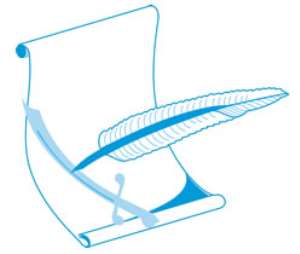
The Ghana Journalists Association (GJA), in collaboration with Impact 360 International, a humanitarian organisation, and others, has launched a nationwide health screening for journalists dubbed, "The Health Train."
Mr Affail Monney, the President of the GJA, at the launch in Accra on Wednesday, said the train would, from the end of March 2019, be moving from one media house to the other, and the same would be rolled out in the regions.
He said health screening was very critical for journalists, especially being the Fourth Estate of the Realm, and knowing the key role they played in nation building it was important that they maintained good health, as their work demanded so much from them.
Therefore, the decision to organise the programme for journalists, he said, was based on the fact that 'because of the nature of our work, hardly do we find time to visit the hospital. We only do so only when we are down with a disease.'
He said the exercise was to ensure that journalists were free from life-threatening Non-communicable diseases that may be hidden in their bodies as they busily move about searching for news to inform, educate and entertain the masses.
Mr Monney explained that over the past few years the inky fraternity had lost some of its seasoned journalists to diseases such as stroke, cardio vascular and other stress-related illnesses that could have been avoided with the right interventions.
'We see these number of deaths as alarming and there is the need to start taking our health seriously.'
'Our work is highly stressful and sometimes dangerous, but we hardly have time to rest or seek medical care.'
Mr Monney said journalists would be screened for diseases such as kidney problems, HIV and AIDS, Cardio vascular, diabetes, hypertension, cervical and breast cancers, malaria, eye, brain and spinal illnesses.
In cases where individuals were diagnosed of any disease and may need medication, the team of health professionals would provide free medications, and further make referrals where necessary, and also ensure follow ups, he said.
He called on all media personnel to take advantage of the laudable initiative and get screened to know their health status and to get the needed medical attention when necessary at an early stage and stay fit to tell their stories.
He thanked Impact 360 International and all the other partners for the support and for making the initiative a reality.
Mr Clifford Ladzekpo, the Chief Executive Officer of Impact 360 International, said the importance of good health could not be over-emphasised.
He said good health underpinned sustainable development, therefore a country should not allow its productive workforce to be plagued and wipe out by preventable diseases.
Mr Ladzekpo said the campaign intended to take quality healthcare to the corridors of media houses to ensure equity and accessibility and would be collaborating with other healthcare institutions to ensure that referred cases were taken care of.
He called for support from corporate Ghana to help finance the project.
Mrs Grace Kafui Annan, the Director in Charge of Health Promotion at the Ghana Health Service, commended the GJA and its partners for the initiative.
She, however, urged the public to take up the responsibility of undergoing routine screening and document the findings, do follow-ups, exercise regularly, adhere to good dietary practices and take their medication.
Present to show their solidarity were representatives from Organisations including the Ghana Independent Broadcasters Association and the Private Newspaper Publishers Association of Ghana (PRINPAG).
Mr Edwin Arthur, the Representative of PRINPAG, advocated for the institution of a scheme that took care of the health needs of journalists and a fund to complement their financial needs aside the National Health Insurance Scheme.
—GNA




 We’ll protect state wealth from opaque deals – Prof Jane Naana
We’ll protect state wealth from opaque deals – Prof Jane Naana
 Mauritania president says running for second term in June polls
Mauritania president says running for second term in June polls
 I won't ever say I was a mere driver’s mate' — Prof. Opoku-Agyemang
I won't ever say I was a mere driver’s mate' — Prof. Opoku-Agyemang
 2024 polls: 'EC struggling to defend credibility'— Prof. Opoku-Agyemang
2024 polls: 'EC struggling to defend credibility'— Prof. Opoku-Agyemang
 Akufo-Addo gov't's 'greed, unbridled arrogance, unrestrained impunity, sheer dis...
Akufo-Addo gov't's 'greed, unbridled arrogance, unrestrained impunity, sheer dis...
 Election 2024: Ghana needs an urgent reset, a leadership that is inspiring – Ma...
Election 2024: Ghana needs an urgent reset, a leadership that is inspiring – Ma...
 Partner NDC to rollout a future of limitless prospects – Prof Jane Naana Opoku-A...
Partner NDC to rollout a future of limitless prospects – Prof Jane Naana Opoku-A...
 NPP will remain in gov’t till Jesus comes — Diana Asamoah
NPP will remain in gov’t till Jesus comes — Diana Asamoah
 Sunyani Technical University demands apology from former SRC president over sex-...
Sunyani Technical University demands apology from former SRC president over sex-...
 'Dumsor' was resolved by Mahama but ‘incompetent' Akufo-Addo has destroyed the g...
'Dumsor' was resolved by Mahama but ‘incompetent' Akufo-Addo has destroyed the g...
